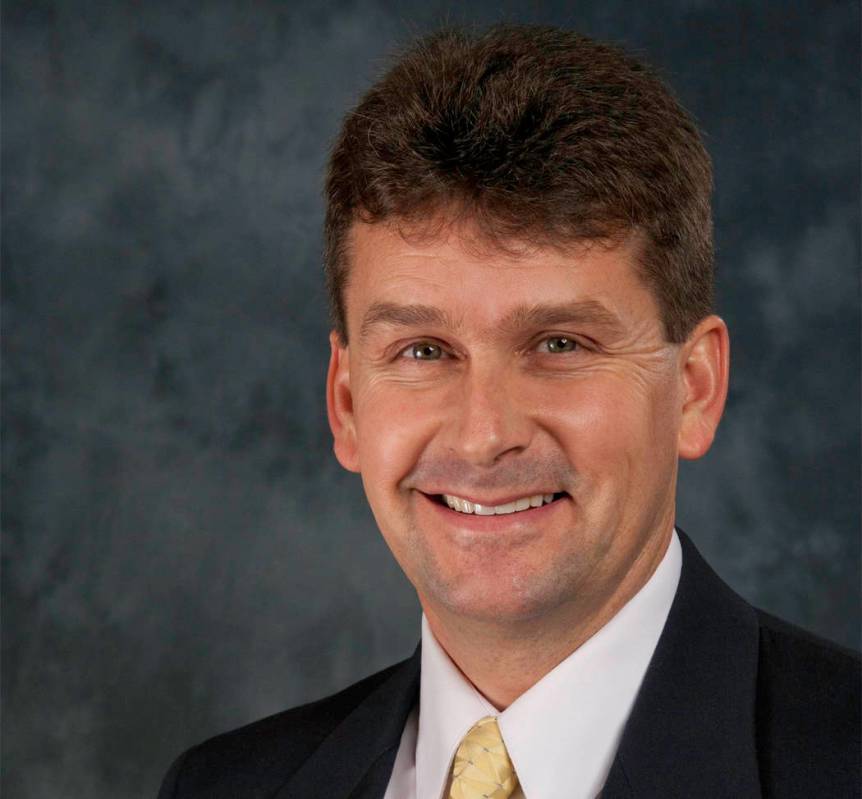
Two weeks from today, Boulder City will be holding the first in what we hope is a long series of regularly scheduled town hall meetings designed to encourage informal discussions among citizens, council members and city staff on a variety of subjects. The inaugural meeting will take place at 6 p.m. Oct. 19 at the Elaine K. Smith Center, 700 Wyoming St. At the request of Councilman Warren Harhay, the topic will be utilities.
That topic is timely given that the second round of our 2016-approved utility rate increases recently kicked in. Consequently, I thought it useful to address a few of the more common utility-related issues being bantered about lately. I obviously do so with some hesitation, since paying utility bills isn’t high on anybody’s favorites list, least of all my own.
Virtually all of us view utility bills as a necessary evil, and we like them even less when rates go up. Trust me, my goal isn’t to persuade you to like them. That would be an effort in futility. And my objective isn’t even to convince you that the approved rate increases are necessary, although that’s something I firmly believe.
But I do think it’s worthwhile to base all of our public dialogue on facts rather than fiction, rumors and half-truths. So, even though my aim isn’t very ambitious, I’m hopeful that I can at least dispel some of the speculation that abounds and provide a few important clarifications on which to build productive dialogue going forward.
One commonly held notion is that our utility rates are now much higher than the rates our neighbors pay over the hill. Some people use that notion to justify their perception of why prospective residents and businesses aren’t banging down our doors to relocate here any more. And, of course, it would be wrong of me to suggest that the cost of utilities isn’t a factor that’s relevant to such a consideration.
But the truth is that our utility rates are still significantly lower than those in nearby communities. If you come to the Oct. 19 town hall meeting, you’ll have an opportunity to see some comparisons. Then, if you’re still skeptical, our utility department can even run a dummy bill comparison that takes actual data from your own utility bills and shows you approximately what you would pay if you instead lived elsewhere in Clark County.
In fact, that’s exactly what I asked staff to do for me. I learned a few things from that exercise, to be sure, but Boulder City having higher utility rates than our sister cities wasn’t one of them. Quite to the contrary, the dummy comparison unequivocally demonstrated that if I lived in Henderson or North Las Vegas, for instance, my utility costs would be at least one-third more than I’m paying here.
That’s not to say that the gap between us and surrounding cities hasn’t narrowed when each of our rate increases was triggered, since common sense tells you that’s inevitable. But, over the last year and a half, other local jurisdictions have raised their rates, too, and in some cases multiple times.
Regardless, the bottom line is that, on the whole, we’re still paying significantly less for utilities than our counterparts in nearby cities. In fact, when I bemoan how much I now pay for utilities, outsiders and transplants typically roll their eyes, inform me they’re used to paying substantially more, and admonish me that I have absolutely nothing to complain about.
Another common theme that I’ve heard vocalized lately is that our utility bills have doubled or tripled since the 2016 rate increases.
But that will have to wait for Part 2 of this column in next week’s edition. In the meantime, please put the Oct. 19 town hall meeting on your calendar. It promises to be an informative gathering, and I urge everyone to attend.
Rod Woodbury is mayor of Boulder City. He has been serving on the City Council since 2011 and is the president and managing shareholder of his law firm, Woodbury Law.